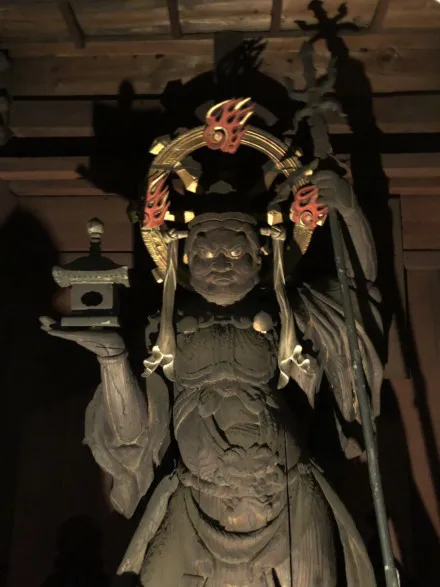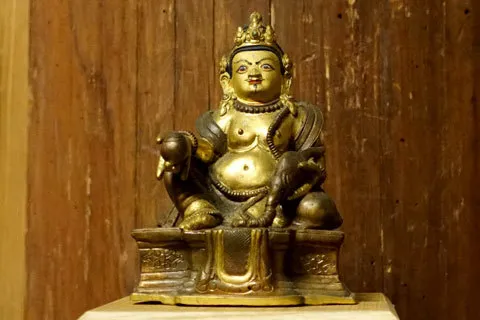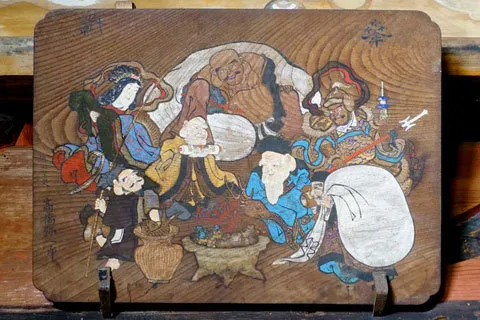About Bishamonten in Japan
What is Bishamonten?

Origin of the name Bishamonten

In Japan, Bishamonten is known as the Seven Lucky Gods and the Four Heavenly Kings, but his predecessor is said to be Kubera, the god of treasure that appears in Indian mythology. Kubera, the Indian god of wealth, is also called ''Vaishravana'' in Sanskrit. The sound ''Vaishravana'' was translated into Chinese as ''Bishamon.'' It is said that the word ''ten'', which means god or heaven, was added to this word ''Bishamon'', giving it the name ''Bishamonten''.
Bishamonten and Tamonten
Kubera, the Indian god of wealth, who was the predecessor of Vaisravana, had another name, "Vaishravana. This name "Vaishravana" could be taken to mean "listening well" in Sanskrit. This meaning of "listening well" was then translated into Chinese and became "Tamon-ten. This name was then introduced to Japan, and together with Bishamonten, it is believed to be the origin of the name "Tamonten".
In Japan, he is called "Bishamonten" when enshrined as a Dokonin, and "Tamonten" when enshrined as a Shitenno.
Bishamonten is the patron god of the north
Bishamonten is the god of treasure
Bishamonten's dependents: Yasha, Rausetsu
The shape of the statue of Bishamonten
Four Heavenly Kings and Bishamonten
Four Heavenly Kings
Twelve Devas and Bishamonten
Shichifukujin and Bishamonten
Shichifukujin (The seven gods of good fortune in Japan)
Shichifukujin refers to the seven gods of good fortune that are worshipped in Japan. The origins of these gods of good fortune vary, and include Hinduism, Buddhism, Taoism, and Shintoism. Historically, the deities belonging to the Seven Gods of Good Fortune were not constant and there were many different styles. Today, Bishamonten, Ebisu, Jurojin, Daikokuten, Fukurokuju, Benzaiten, and Hotei are often considered to be the seven gods of good fortune.
Daikokuten is enshrined along with Sanno-gongen on the west side of the main hall in the precincts of Oiwasan Bishamonten.




Bishamonten (Vaisravana) is a Buddhist deity who belongs to the heavenly realm in Buddhism. He is one of the four heavenly kings and twelve heavenly deities, and protects the northern direction. When he is enshrined as one of the Four Heavenly Kings, he is called Tamonten. Bishamonten is also the god of war and is said to bring victory. He is also one of the Seven Gods of Good Fortune and is a god of good fortune who bestows various virtues.